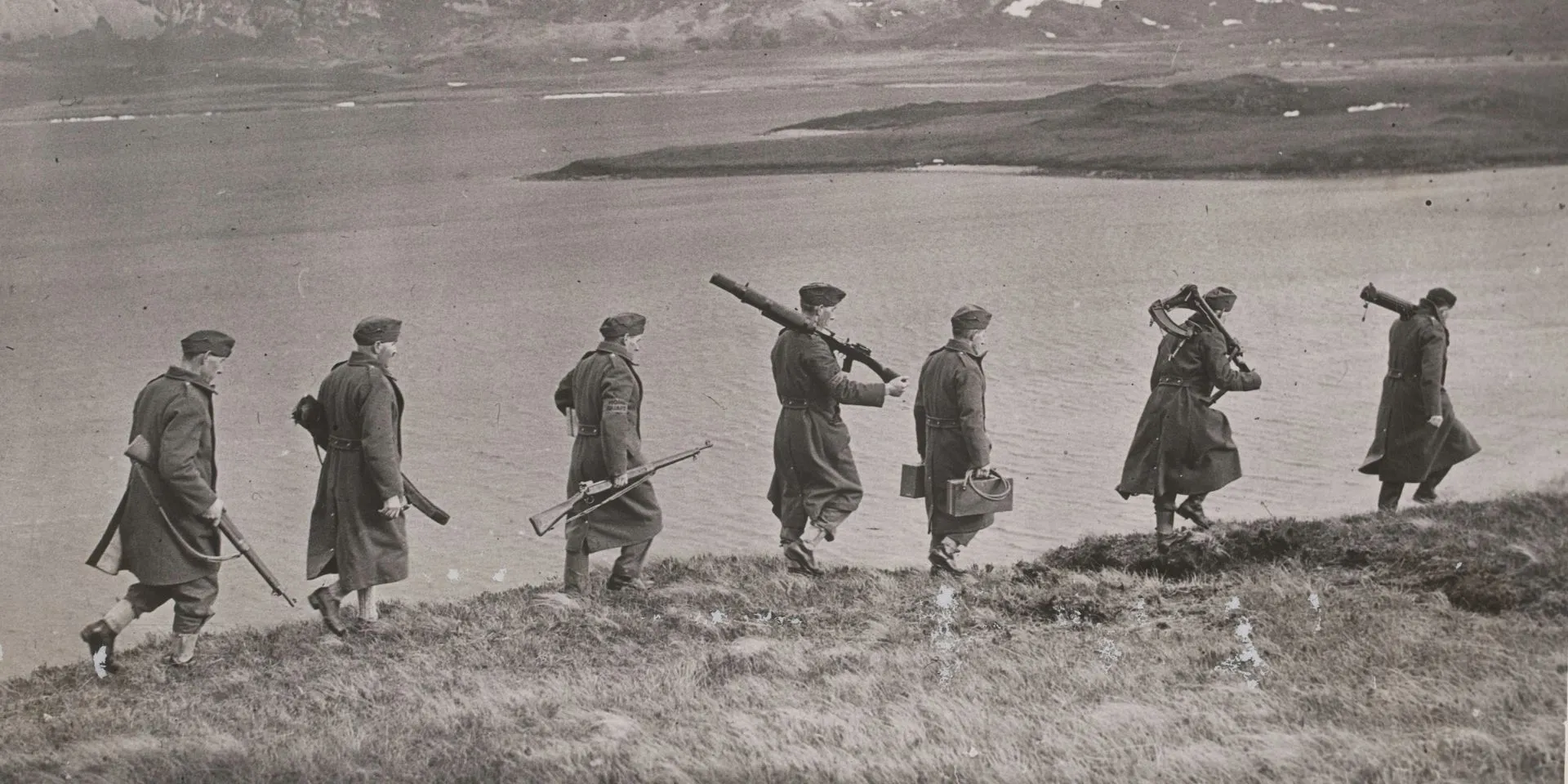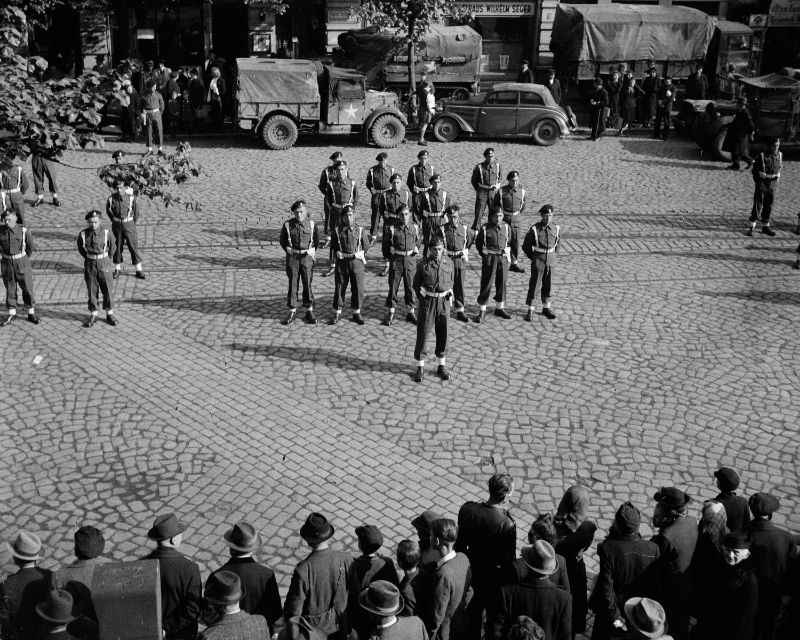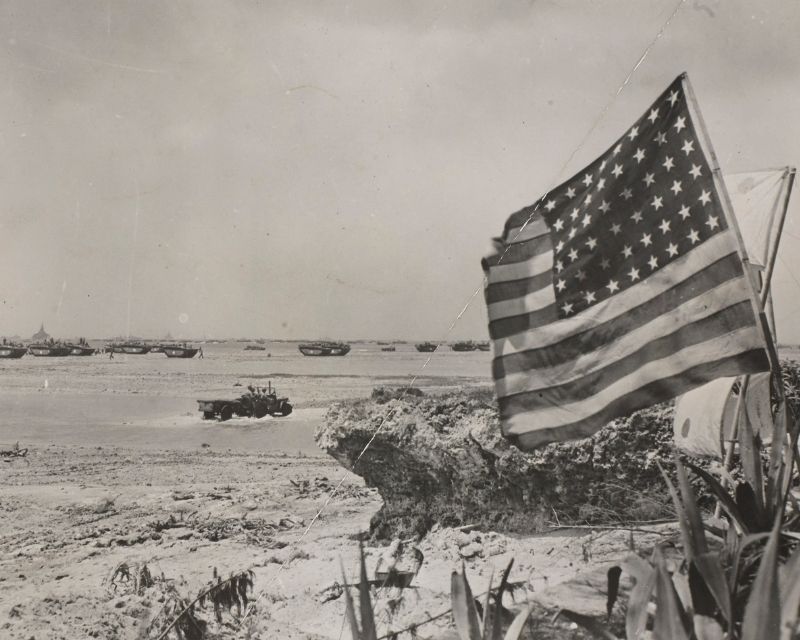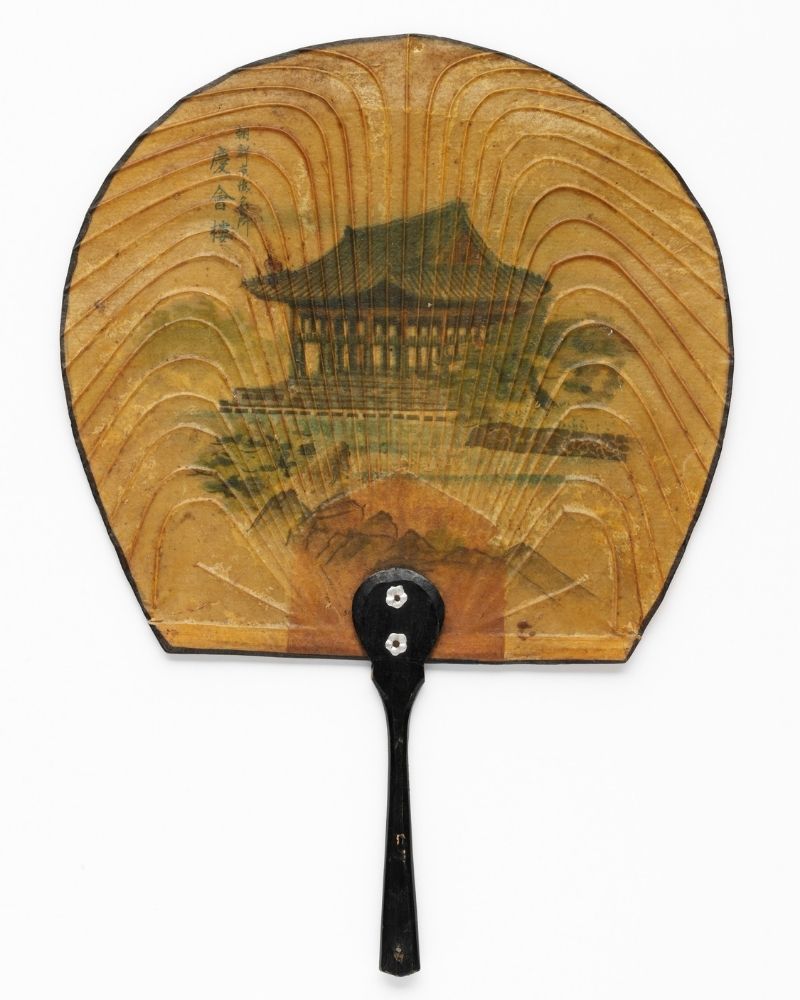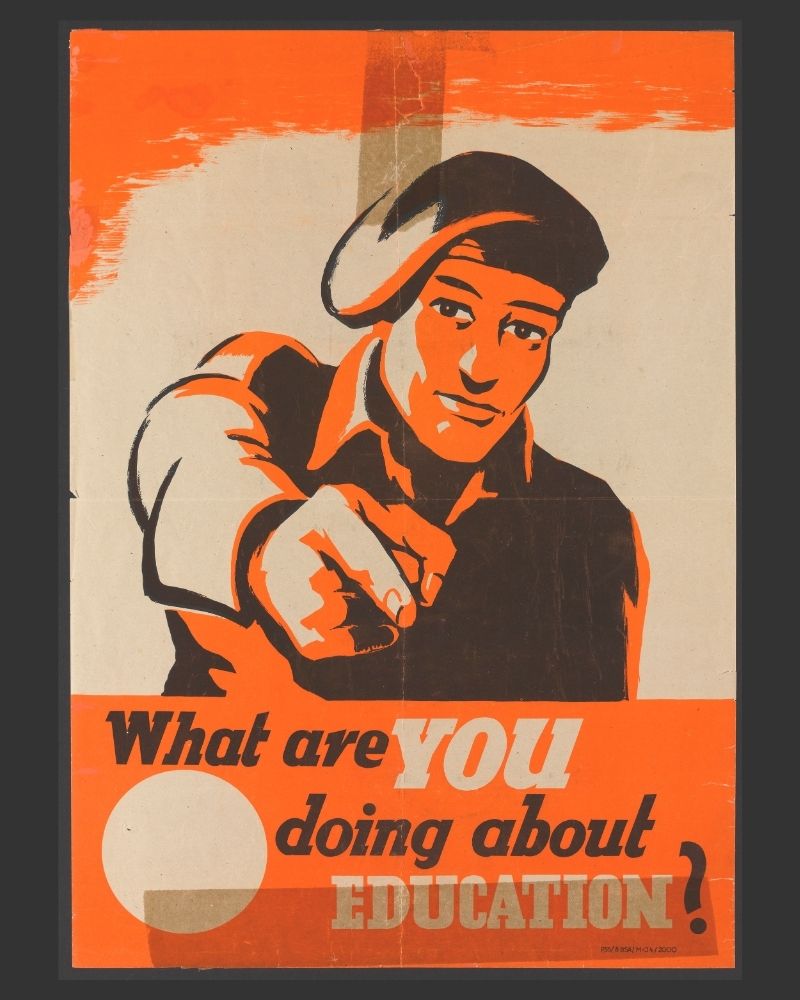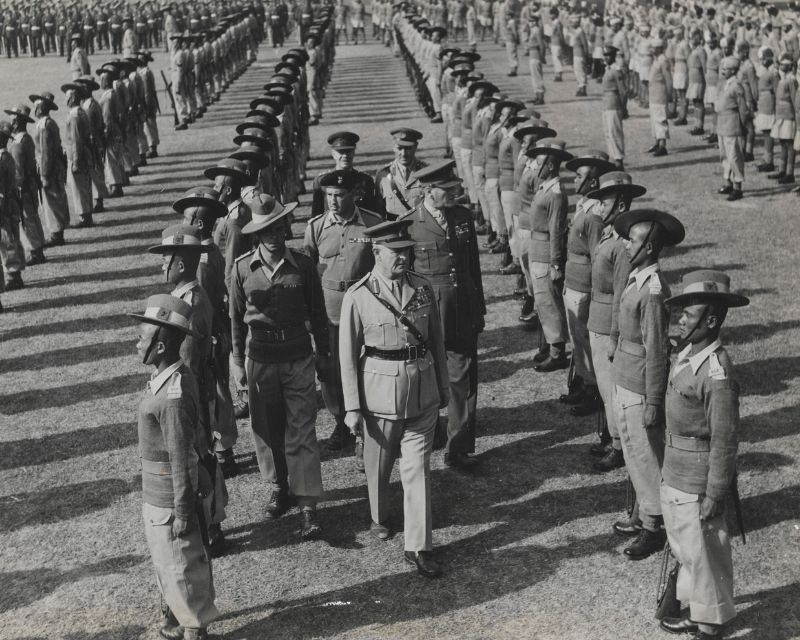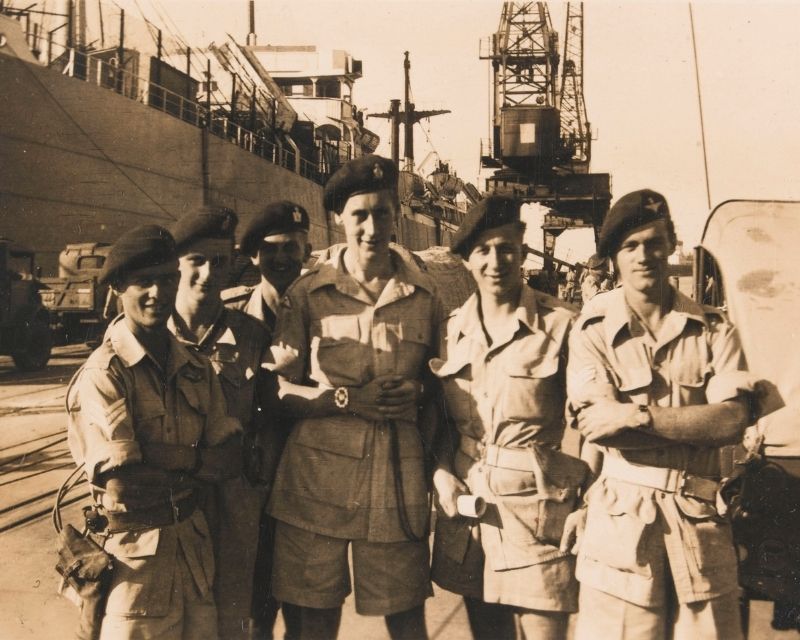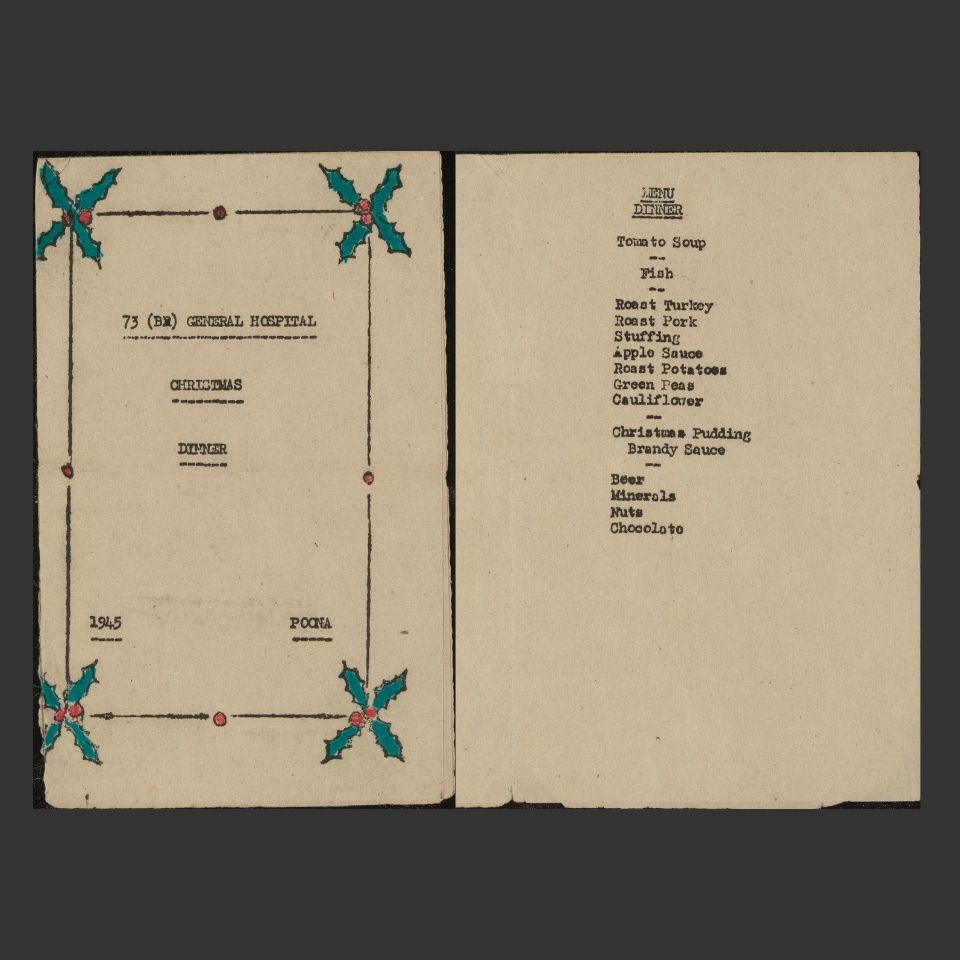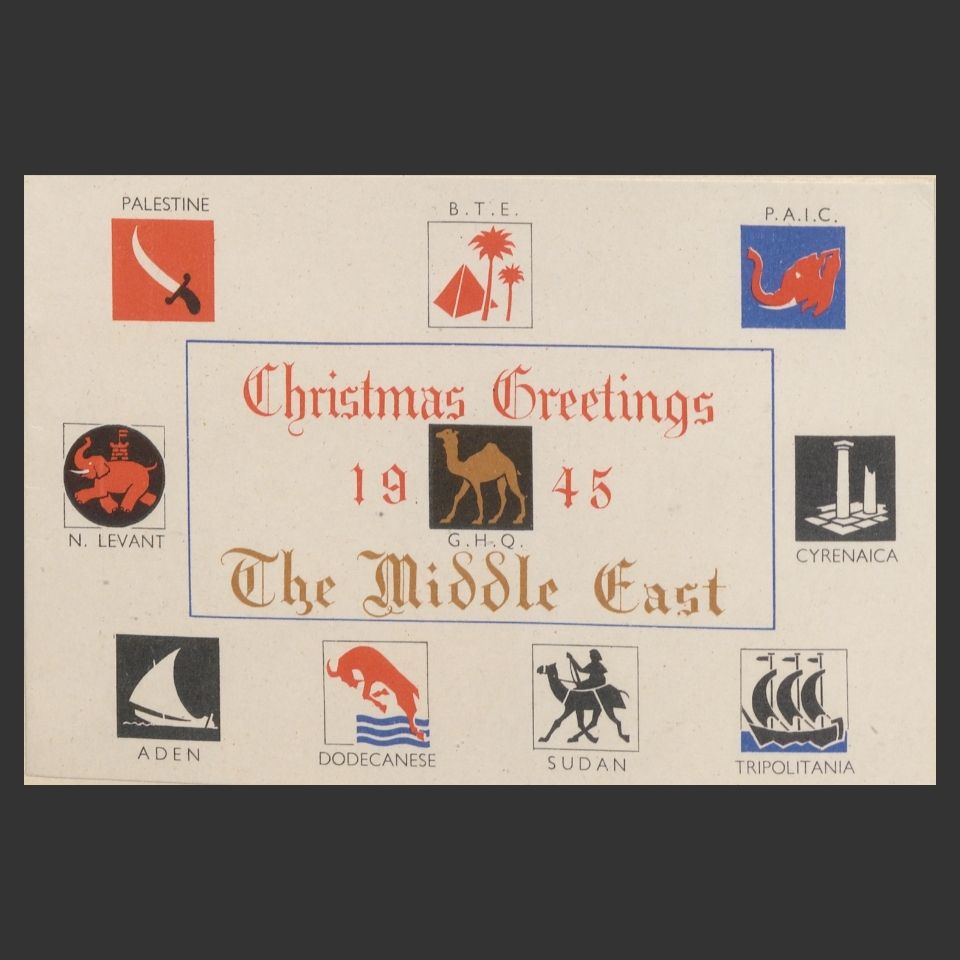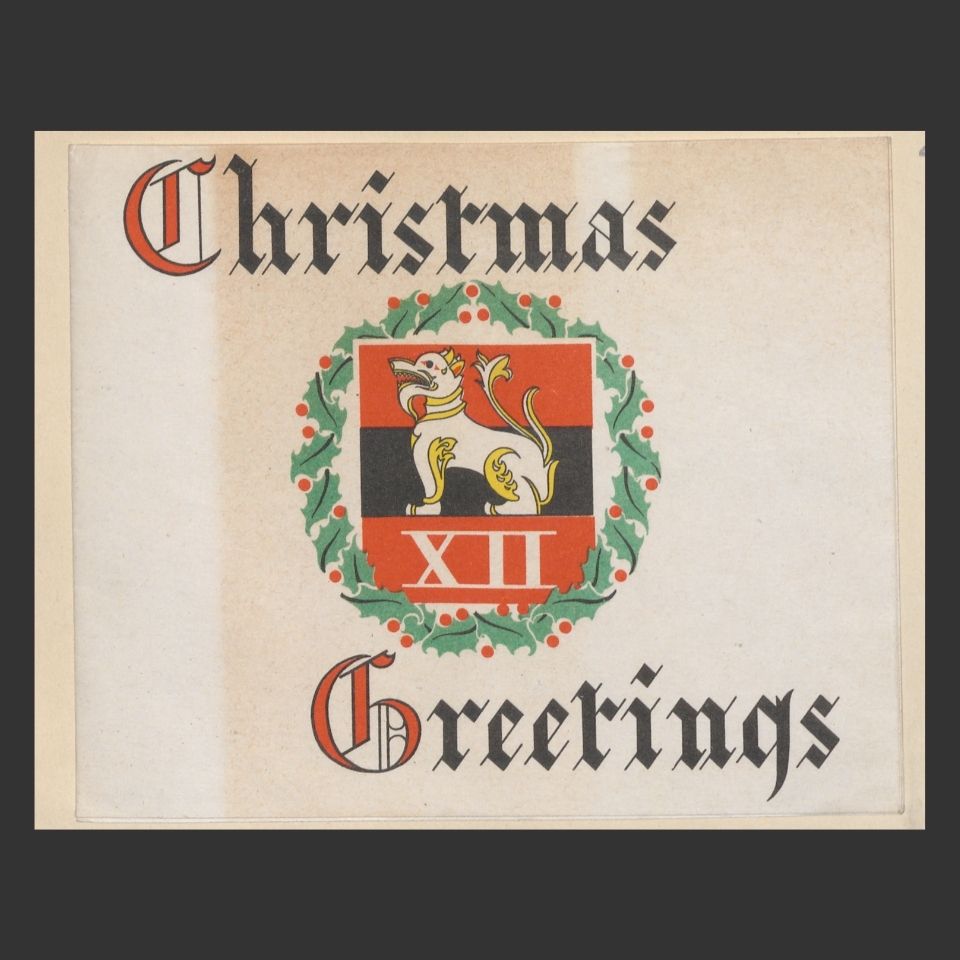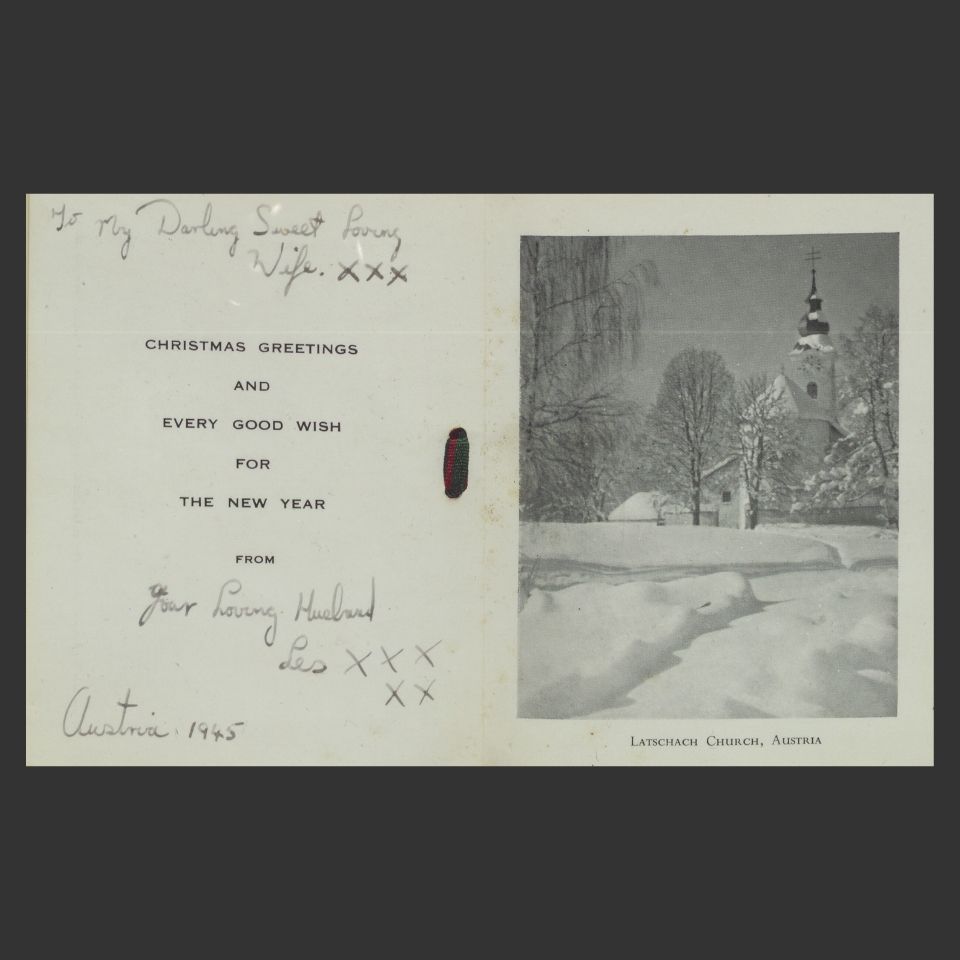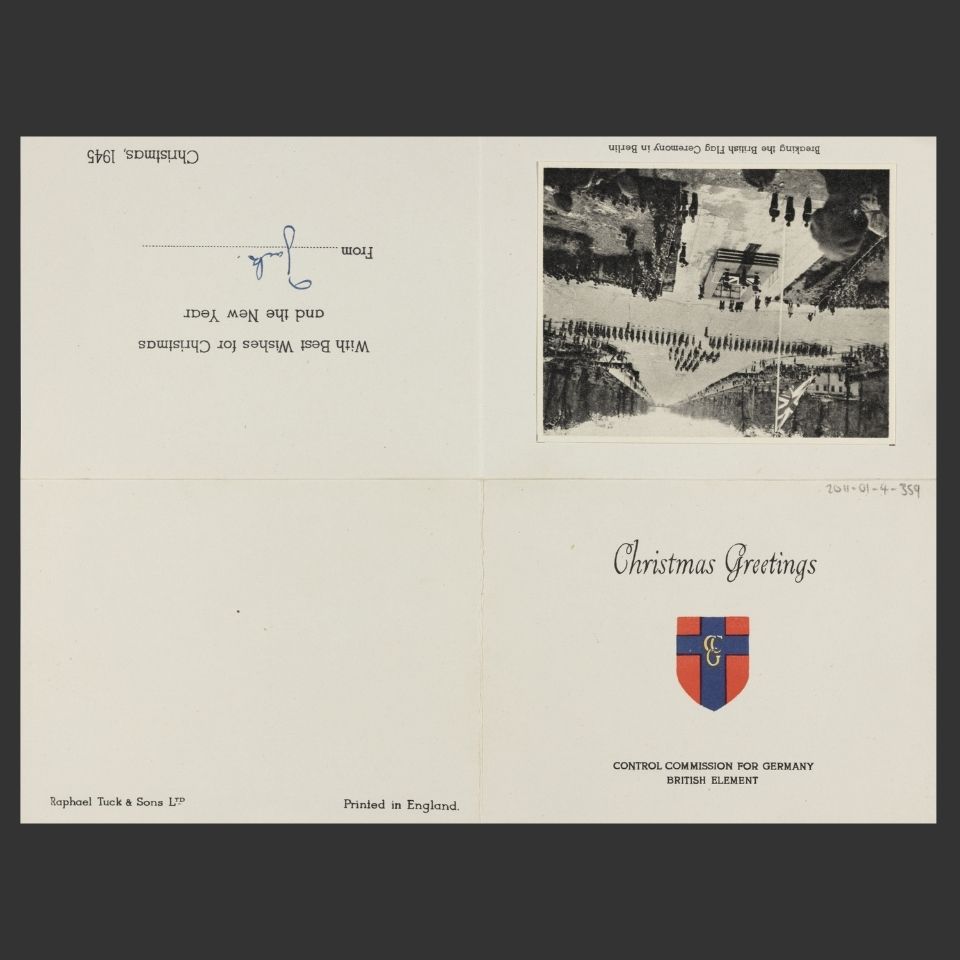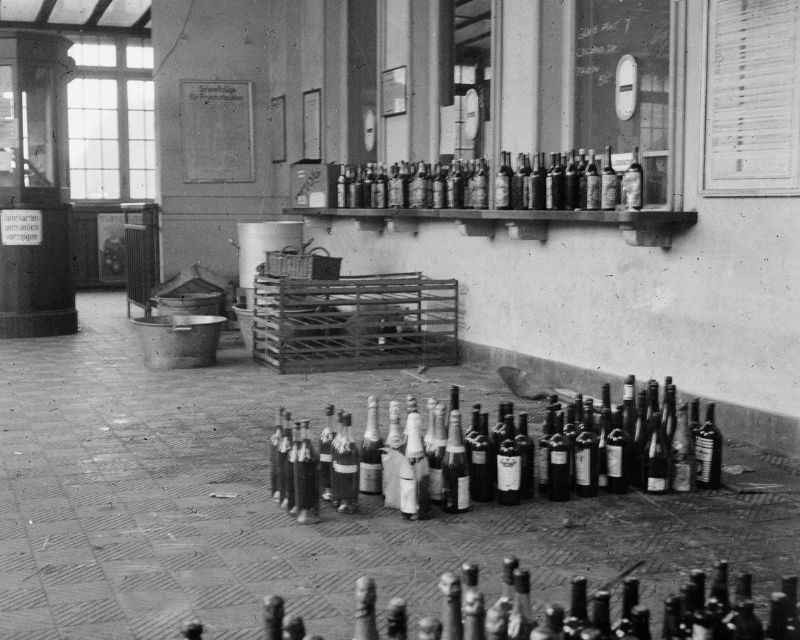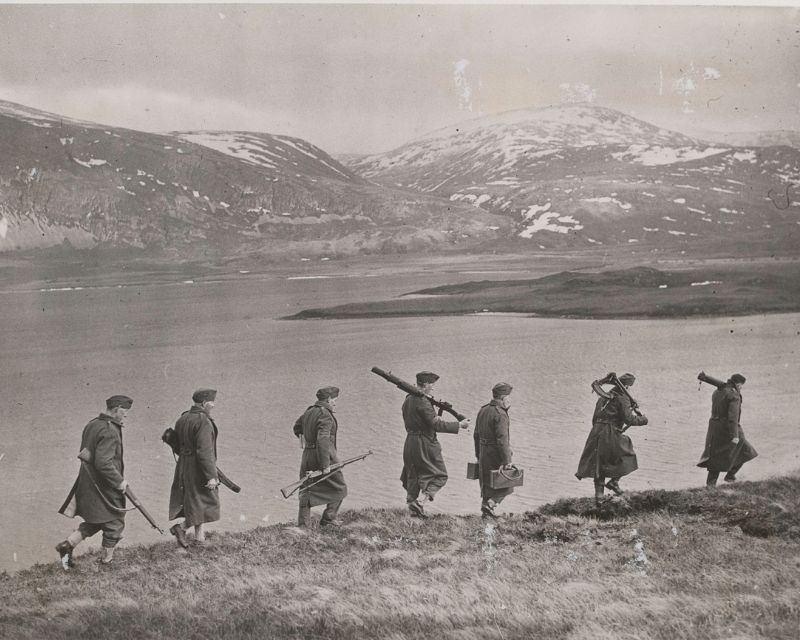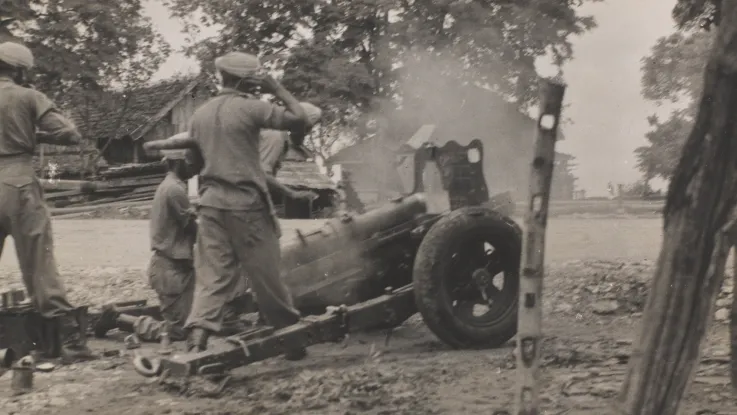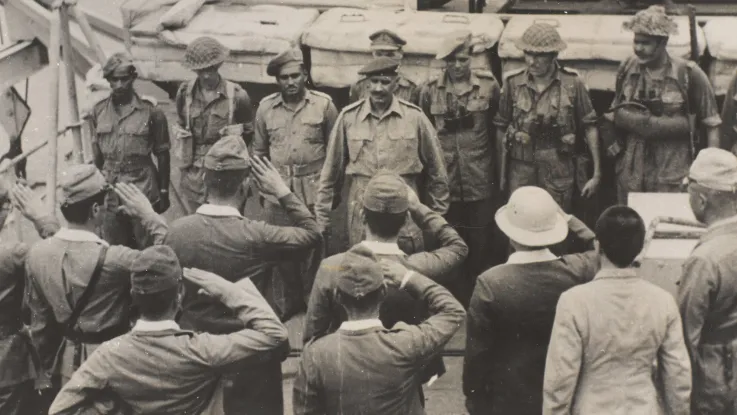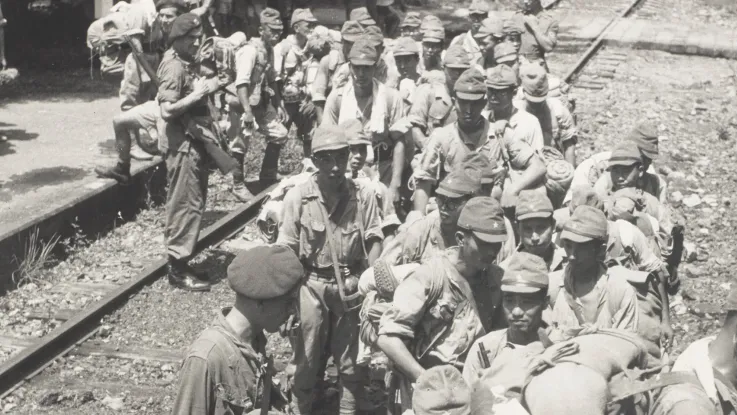State of Affairs
As 1945 came to an end, the complex legacies of the Second World War continued to be felt across the globe.
In early December, British and Indian troops declared victory over republican militias in the Indonesian city of Surabaya. But armed anti-colonial resistance now spread across the rest of the island of Java. By the end of the year, as the first Dutch troops arrived to relieve their British allies, the outcome of the Indonesian National Revolution remained uncertain.
In Palestine, still under British mandatory control, an escalating conflict between Jewish and Arab nationalists prompted the deployment of yet more British Army units. Conversely in Egypt, Prime Minister Mahmud Fahmi al-Nuqrashi demanded the departure of all British troops. This prompted a tactical withdrawal to the Suez Canal Zone that provided a brief respite from growing diplomatic tensions between the two countries.
Meanwhile, a nascent conflict with the Soviet Union was intensifying at an alarming rate. In Germany, the onset of winter threatened a humanitarian catastrophe in the British Zone. It forced Britain to consider alternative approaches to the military occupation, despite strong Soviet opposition. Therein lay the origins of the Cold War.
But it wasn't all doom and gloom. This first postwar Christmas was a special time. British soldiers across the world, as well as those reunited with friends and family back home, enjoyed the festive celebrations. Inevitably, attention turned to the future – and, for many of those still in uniform, the long-awaited prospect of demobilisation.
At the end of this historic year, there was no concealing the many difficulties that remained, from ongoing conflicts to the challenges of rebuilding after the war. But whatever kind of world was to be constructed upon the foundations set in 1945, there was little doubt that the British Army – and its veterans – would continue to play an essential role.
Denazification continues
On 1 December, British troops in Germany assisted in the arrest of 76 Nazi industrialists from across the Ruhr and Rhineland. It was a major operation aimed at bringing to justice those guilty of complicity with the Nazi regime and the use of slave labour.
As the Cold War came into view, enthusiasm for trying historic crimes of the Third Reich began to wane. By 1947, the official denazification efforts in the British Zone were largely over.
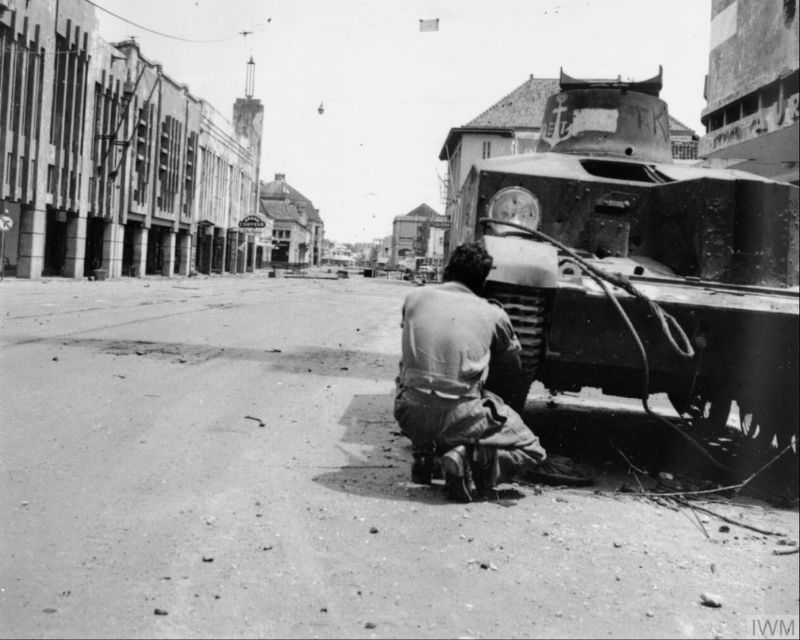
Image courtesy of the IWM
Battle of Surabaya comes to an end
On 2 December, the British completed a military victory over independence fighters in Surabaya, Indonesia. Above, an Indian soldier is shown crouching behind an abandoned tank during the fighting there.
The combined naval, air and ground attack had pushed the nationalist forces out of the city. But fighting between British forces and nationalist combatants now spread throughout the rest of the island of Java.
‘We saw little of the country as during the whole of our stay we were never allowed outside the town, even when we went there we had to have an armed escort. On two occasions I was allowed to accompany the Dutch forces to outlying villages in order to treat the Indonesian sick and wounded. They came in large numbers, increasing as the week went on, their main complaints were malnutrition and tropical sores.’Matron Aldwinckle describing the work of the 82 Indian General Hospital, Surabaya, Indonesia — December 1945
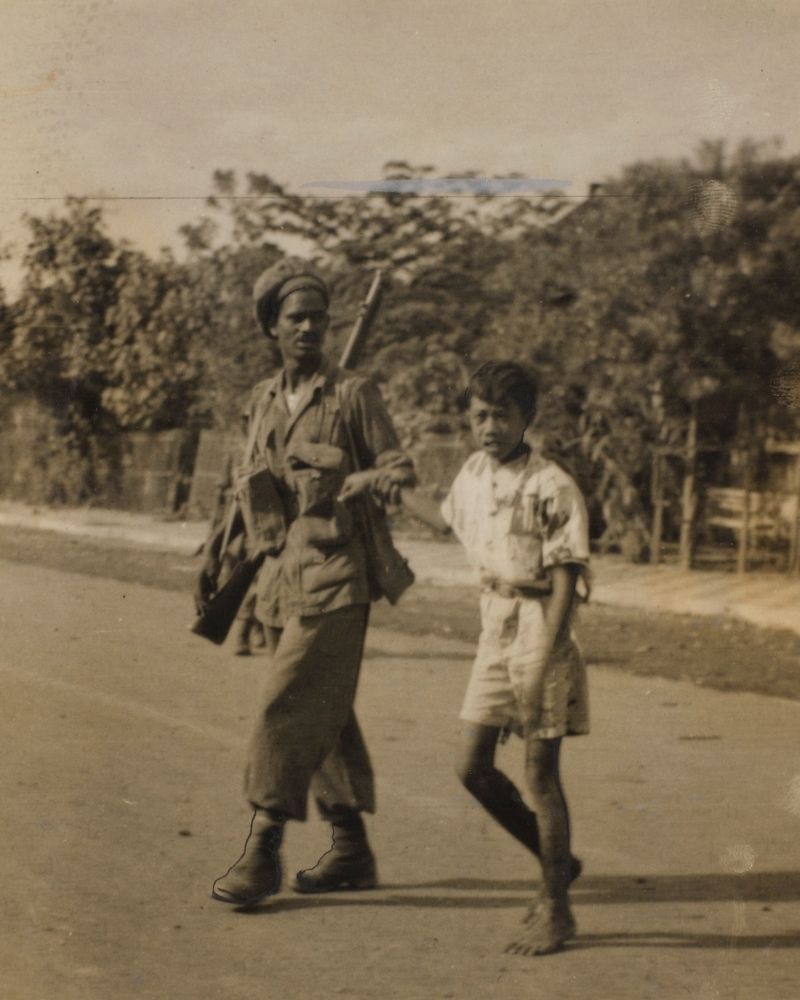
The 'pemuda' movement
An Indian Army soldier is shown escorting a young Indonesian boy, most likely a suspected nationalist fighter under arrest.
The 'pemuda' - literally 'the youth' - were often highly politicised and actively supported the Indonesian independence movement.
‘D day – 161 Brigade will form cordon around BATAVIA. All posts to be manned by 1200 hrs and will remain in position until completion of operation. D + 1 – Check all vehicles other than military. D + 2 – Arrest of undesirables. D + 3 – Systematic searching of BATAVIA Kampongs [villages] for arms.’Orders for ‘Operation Pounce’ (mopping-up operations in Java), 161st Indian Infantry Brigade, Batavia [now Jakarta], Indonesia — 14 December 1945
The Special Relationship
Arguably one of the greatest changes in the postwar world was the ascendent power of the United States. This became abundantly clear in December 1945 with the Anglo-American Financial Agreement.
The US government agreed to provide Britain with a $3.75 billion loan in exchange for acquiescence on various financial stipulations, including the liberalisation of trade and the founding of the International Monetary Fund.
The loan was essential to prop up the British economy and to pay for military expenditure abroad. Yet this agreement would ultimately help to establish the United States as the dominant economy in the Western world.
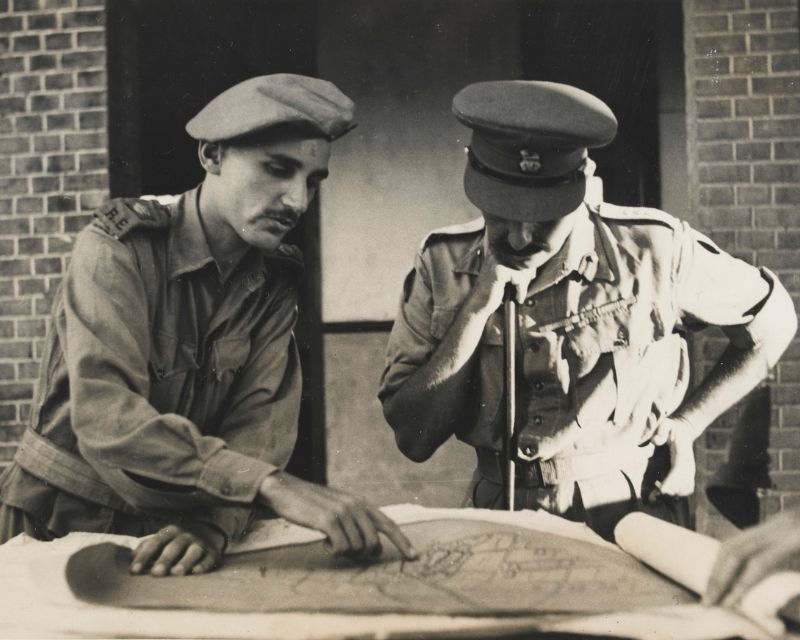
Rebuilding Burma
British students of architecture, planning and civil engineering in the Service Arts and Technical Organisation (SATO) worked on plans for reconstruction in Burma (now Myanmar) under the guidance of experienced planners Major Percy Johnson-Marshall and Major William Tatton-Brown.
Johnson-Marshall (pictured above left) is shown explaining plans for rebuilding the town of Prome (now Pyay) to Brigadier Swynnerton, commander of the 1st West African Infantry Brigade.
First Nazi war criminals executed
13 December 1945
Following the death sentences delivered at the Belsen trial the previous month, Britain’s official executioner, Albert Pierrepoint, arrived in the British Zone in Germany and undertook the hanging of 13 prisoners, including Josef Kramer and Irma Grese.
‘I would like to inform you that I arrived home after a good trip on Saturday morning. I shall call in to see you, when I am in London during next week.’Letter from Albert Pierrepoint, Britain’s official executioner, to Captain Derek Barton of the Intelligence Corps — 15 December 1945
State support for Shinto banned in Japan
This fan, captured during the war, depicts a Shinto temple.
The Allied occupiers in Japan – led by the USA – believed that the Shinto religion had contributed to the rise of a nationalist and militaristic culture within the country. As a result, they outlawed state support for Shinto in mid-December.
This separation of church and state would have a significant impact upon postwar Japan.
An Army education
With millions of troops being demobilised, the Army invested time and money to retrain soldiers in all manner of skills and trades, from sculpture to engineering.
In 1945, the Army Education Corps opened Army Schools of Education in Wakefield, Greenwich and Drymen, in addition to Formation Colleges in Italy and Germany.
These institutions were also invaluable for those staying on in the Army, whether for acquiring new technical skills or simply to explore personal interests.
‘Students who are accepted for courses of study by other technical wings of the Central Mediterranean Forces Formation college – the Army’s own university – must have reached a certain educational standard but 4 Wing will take any man or woman who is interested in art in any form. The month’s course in Florence is intended to provide Service men and women with “opportunities to develop their appreciative, critical, and technical powers.” … I noticed a pleasing lack of formality on this course. Officers and other ranks share the same hotel accommodation... Other courses at the college include engineering, mathematics, commerce, and home management.’Manchester Evening News — 5 December 1945
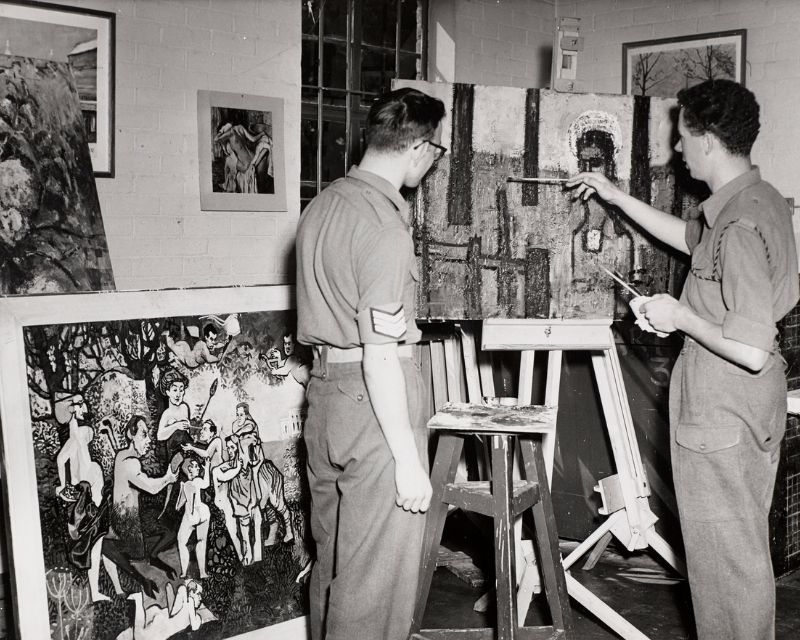
Soldier artists
The mass mobilisation of the British population during the Second World War meant that people from all walks of life served in the Army. This included talented artists such as Rex Whistler and Ronald Searle.
In 1945, art students at the Army Formation Colleges were encouraged to express their creative side.
‘It is difficult to put into words how much I appreciate all you have done for the Formation College since its inception... Starting from scratch with a lot of unknown Instructors, you have formed them into a magnificent team, and the work done by 4 Wing, under your guidance, will very materially assist in making our Service people into good and happy citizens.’Letter from Colonel Herbert J Impson, Commandant Formation College, to Major Sydney ‘Sam’ Morse-Brown, Perugia, Italy — 17 December 1945
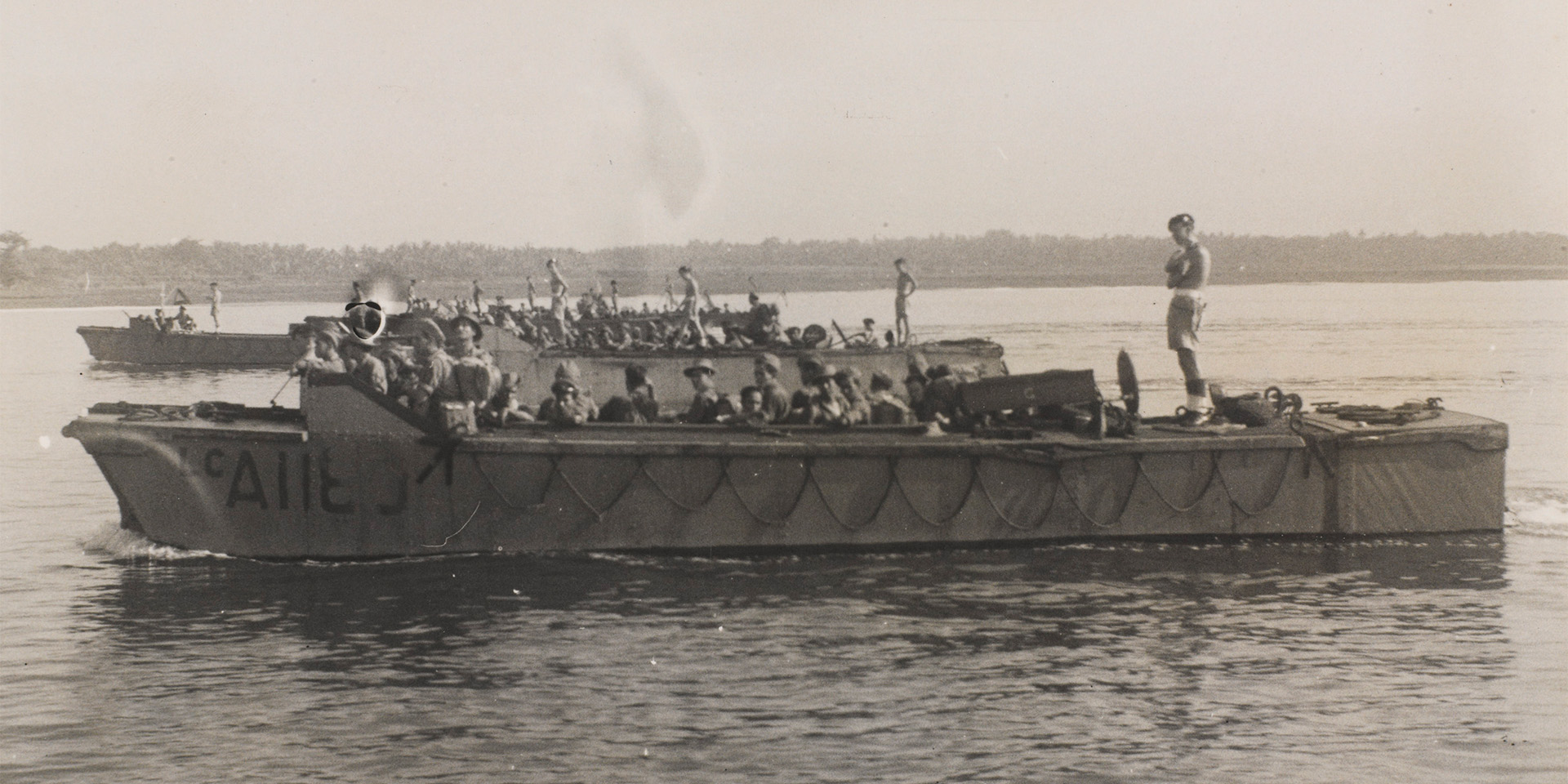
Dutch troops arrive in Indonesia
In December 1945, 2,600 Dutch troops landed at Batavia (now Jakarta) in Java and began to relieve British forces. More soldiers continued to arrive during the following months as the fight over the fate of the Dutch East Indies (now Indonesia) rumbled on.
The image shows units of the Royal Netherlands East Indies Army landing on the island of Bali in March 1946.
‘will [the Secretary of State for War] consider the withdrawal of the 1st Battalion Sea-forth Highlanders from active service in Java in view of the heavy and exacting fighting experienced by these troops in the Burma campaign; and if he is satisfied that these troops could not be relieved by troops who have not suffered these hardships?’Tom Williamson MP in a House of Commons debate on the Dutch East Indies, Westminster — 18 December 1945
Field Marshal Wavell inspects the 8th Gurkha Rifles
Above, Field Marshal Wavell, Viceroy of India, can be seen inspecting a regiment of Gurkhas in December 1945.
In 1947, an agreement between India, the UK and Nepal allowed six Gurkha regiments to transfer to the post-independence Indian Army, with four others transferring to the British Army. The 8th Gurkha Rifles (pictured above) was one of the regiments transferred to India, becoming the 8th Gorkha Rifles.
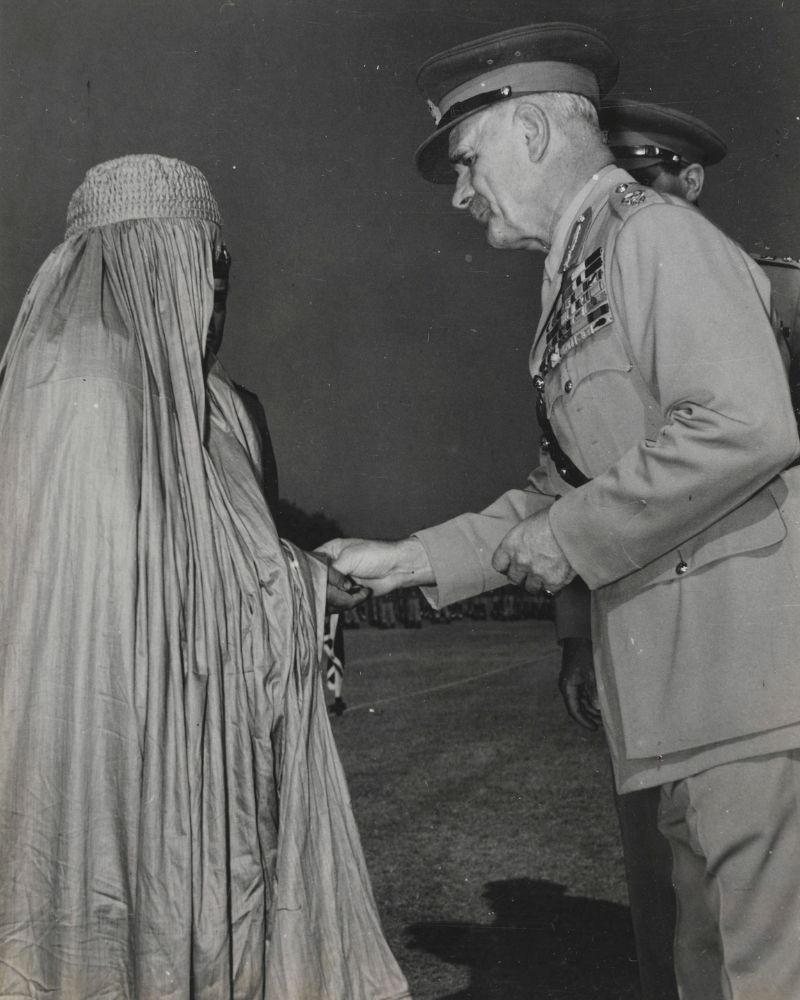
Indian Army VCs
In this photograph, taken on 19 December 1945, Wavell is handing a posthumous Victoria Cross (VC) to the widow of an Indian Army soldier. In total, 30 VCs were awarded to Indian soldiers for service during the Second World War.
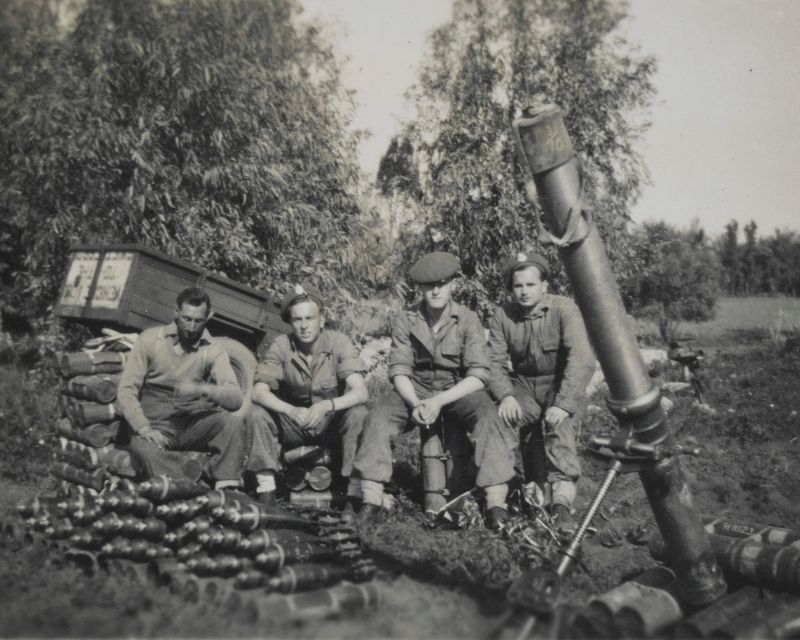
A review of Anglo-Egyptian relations
20 December 1945
On 20 December, the Egyptian prime minster, Mahmud Fahmi al-Nuqrashi, demanded the revision of the 1936 Anglo-Egyptian Treaty, which had allowed a British military presence in the country. Britain’s subsequent refusal prompted demonstrations in Cairo and Alexandria.
A compromise was eventually reached by which British soldiers based in Egypt - like those pictured above - would be withdrawn to the Suez Canal Zone. Yet tensions remained that would eventually lead to the Suez Crisis in 1956.
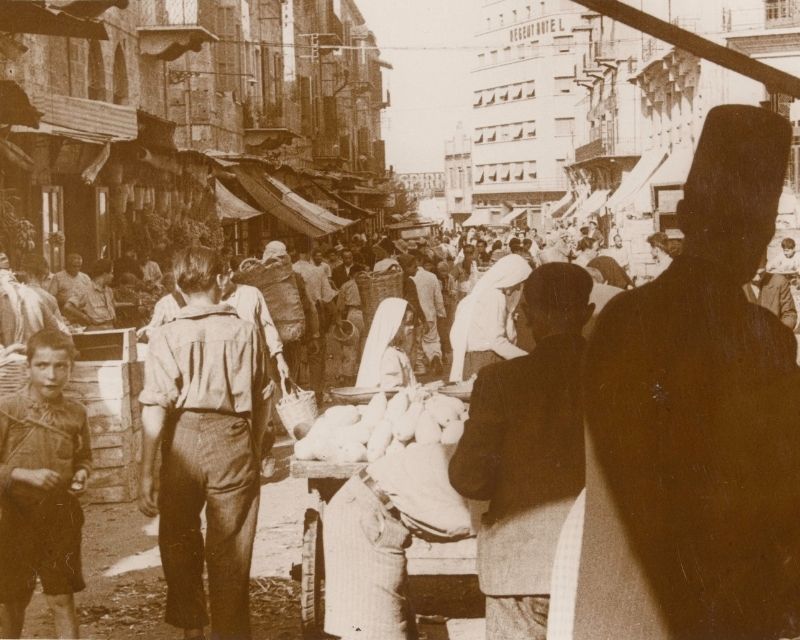
Britain and France agree to withdraw from Lebanon
On 21 December, British and French military delegations met in Beirut (pictured above during the war) to discuss their withdrawal from Lebanon. Major General Robert Stone, leading the British delegation, agreed that soldiers of the Queen's Royal Regiment would leave by 31 August 1946.
The United Nations now recognised Lebanese independence and declared the French mandate to be at an end.
Airborne troops in Mandatory Palestine
In late 1945, the escalating conflict between Arab and Jewish nationalists over the future of Palestine prompted the deployment of more British troops to the region.
Following their arrival in September, soldiers of the 6th Airborne Division were given internal security duties in support of the civil police against the insurgent Zionist terror campaign. In December 1945, Airborne troops were tasked with putting down riots, guarding British positions, and conducting cordon and search operations.
Over the next three years, Britain would gradually lose control over the situation in Palestine, eventually withdrawing entirely. A bloody civil war and the creation, in 1948, of a new state of Israel followed in their wake.
The image above shows members of 317 Airborne Field Security Section at the port of Haifa, in northern Palestine, in 1948.
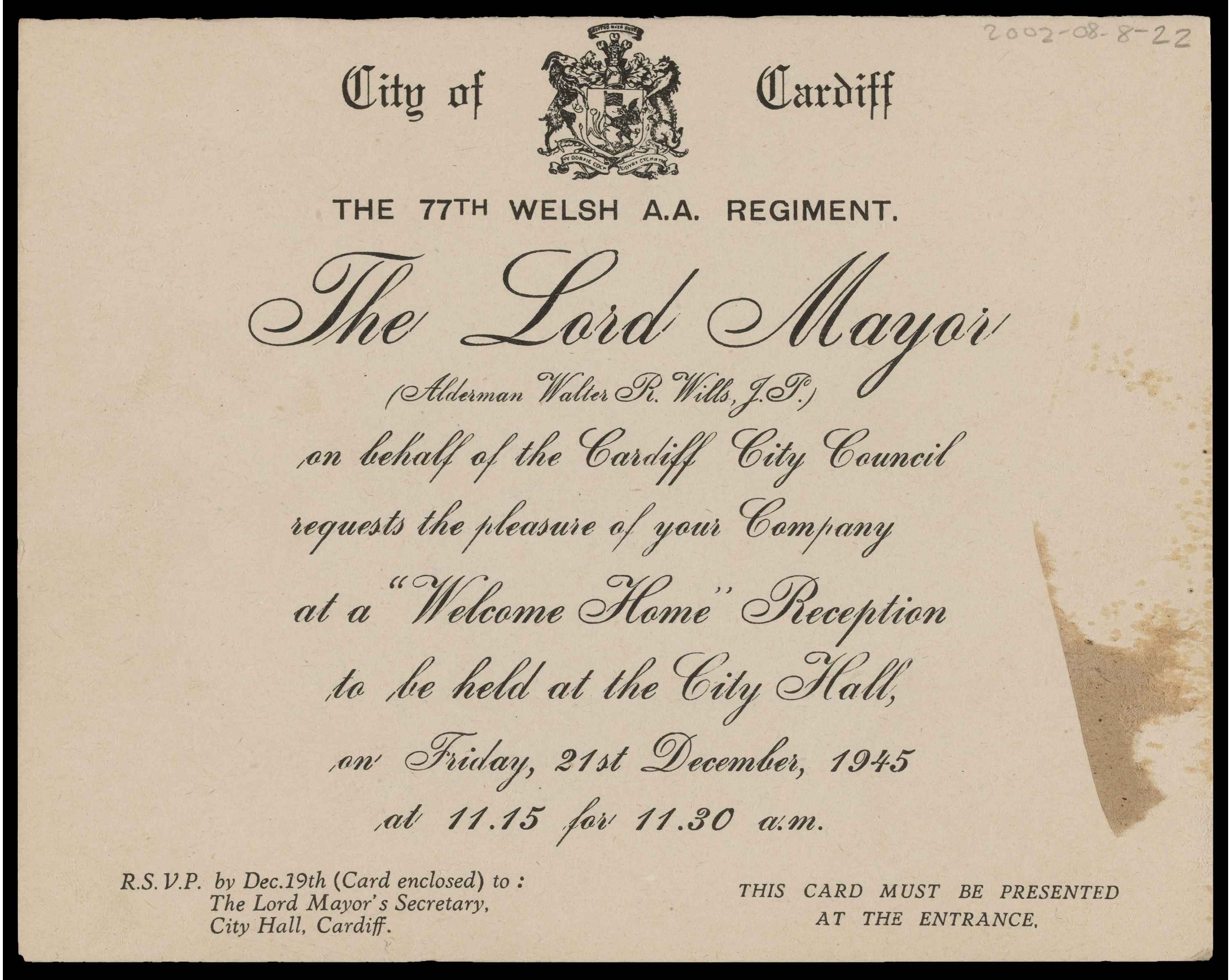
Welcome Home
On 21 December, the Lord Mayor of Cardiff greeted returned members of the 77th Welsh Anti-Aircraft Regiment at a ‘Welcome Home’ reception at the city hall.
This kind of civic reception was common for demobilised soldiers as a way of expressing the nation's thanks for their contribution to the war effort.
Psychological trauma
Everyone who experienced the Second World War carried it with them in some form for many years after 1945.
By the 1940s, military psychiatrists had rejected the term ‘shell shock’, popularised during the First World War, and instead referred to ‘battle exhaustion’ or ‘combat fatigue’. This language suggested more of a temporary tiredness rather than the profound psychological injury that many soldiers suffered during their service.
A culture of silence persisted among veterans for several decades, long before modern concepts like post-traumatic stress disorder (PTSD) were first diagnosed.
‘We are tired men, weary & sore, aching in mind & body. Will you understand us? Will you succour us when we return? Our minds & nerves cry out for rest, for understanding & peace.’An extract from the wartime diary of Sergeant James Thurlby, 5th Battalion Coldstream Guards
The First Christmas of the Postwar Era
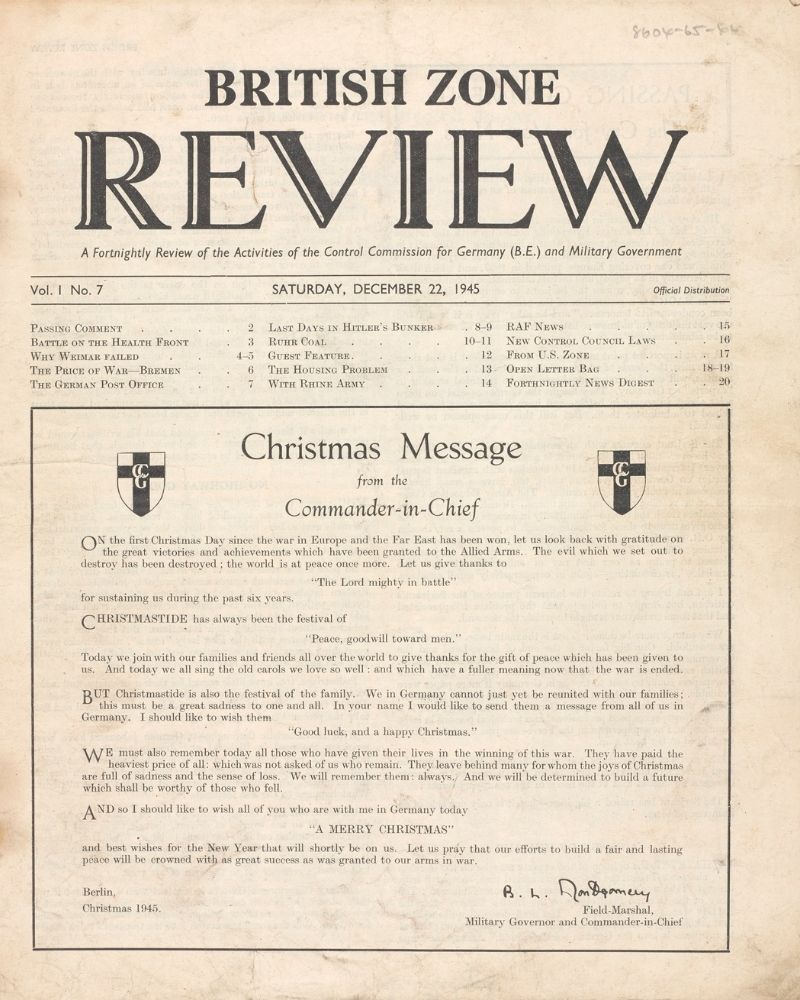
British Zone Review
The British Zone Review was a magazine published for the troops of the occupation army in Germany. It contained a mixture of news, official information and soldiers’ contributions that shine a light on the culture of the British military government.
The December 1945 edition (pictured above) included a message from Field Marshal Montgomery, as governor of the British Zone, wishing the men and women under his command a merry Christmas.
It ended with an optimistic look ahead to the new year: ‘Let us pray that our efforts to build a fair and lasting peace will be crowned with as great success as was granted to our arms in war.’
‘Christmas was celebrated with more than the usual gusto, for was it not the first time for six years that the words “peace on earth” meant something more than a pious aspiration? The usual football matches, some serious, some not so serious; gargantuan meals; indoor hockey played in the local gymnasium under ice-hockey rules; concerts, dances and parties occupied the three days’ break at Menden, Witten-Annen, Lüdenscheid and Leichlingen – as throughout the British Army of the Rhine.’Captain JD Bicknell’s ‘War Chronicle of the Oxfordshire and Buckinghamshire Light Infantry, 1944-1945’, British Zone, Germany — Christmas, 1945
Trouble in Germany
By the end of the year, the British newspapers were filled with stories of British soldiers and civilians involved in drunken escapades, insubordination and black marketeering in occupied Germany. While undoubtedly a case of media sensationalism in part, these accusations were also rooted in truth.
In December 1945, a senior official wrote a secret report on the ‘problems that will have to be resolved if the work of the Control Commission is not to end in disastrous failure’. It warned that the civilian arm of the military government had to avoid the kinds of people who were ‘attracted by stories of the unceasing stream of wines and liqueurs’.
As can be seen in the picture above, alcohol was not in short supply!
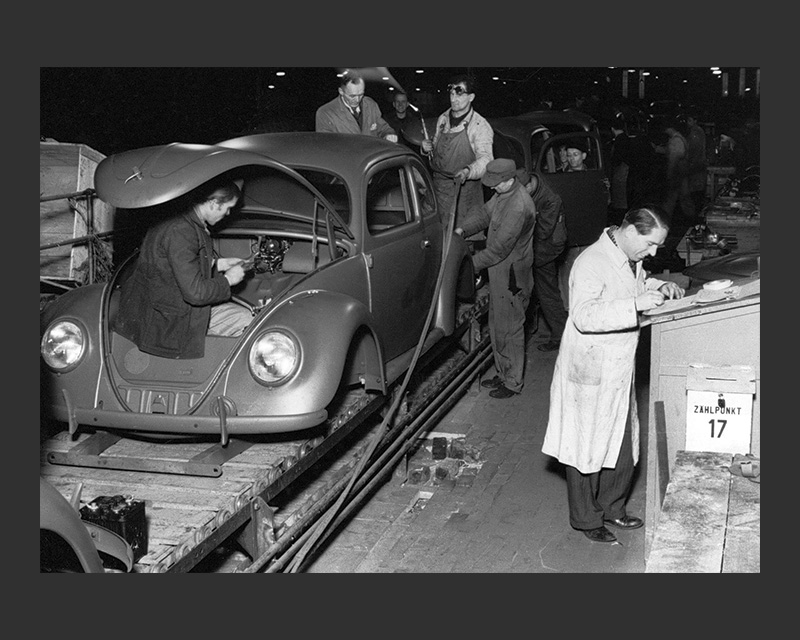
Image courtesy of Volkswagen Aktiengesellschaft
Volkswagen car production restarts
27 December 1945
Under the watch of Major Ivan Hirst of the Royal Electrical and Mechanical Engineers, the car factory at Wolfsburg in the British Zone of Germany restarted production. The famous VW Beetle was produced as a staff car for British forces on the Continent.
‘Now that Christmas is over I feel I must write to express my thanks to you and to all the troops under your command for the splendid job you did in dispatching the frozen Christmas fare to JAVA, SUMATRA, and Eastern MALAYA. Although, of course, it does not compare with the enormous quantity of supplies which you were handling regularly in the hey-day of air supply, its importance to the troops could scarcely have been greater.’Letter from Major General Kenneth Bastyan to Lieutenant Colonel Thomas Newman, Royal Indian Army Service Corps, Singapore — 30 December 1945
The Home Guard is officially disbanded
31 December 1945
In 1940, Local Defence Volunteers (pictured above in Scotland) were formed to protect the British mainland. These units consisted of men too old or too young to be called up, or those in reserved occupations. They came to be known as the Home Guard.
While many units were stood down as early as 1944, it was not until New Year’s Eve 1945 that the Home Guard was officially disbanded.
‘Let me first of all wish you a very Happy New Year. May this New Year bring with it your promotion, a thing that you so richly deserve... I miss 82 so much... I would any day like to be back in it. It is a grand unit and I like it so much. And its efficient matron without whose cooperation and hard work it would not have been what it is today.’Letter to Matron Aldwickle, 82 Indian General Hospital in Surabaya, Indonesia, from a former nursing colleague, Quetta (in modern-day Pakistan) — 31 December 1945
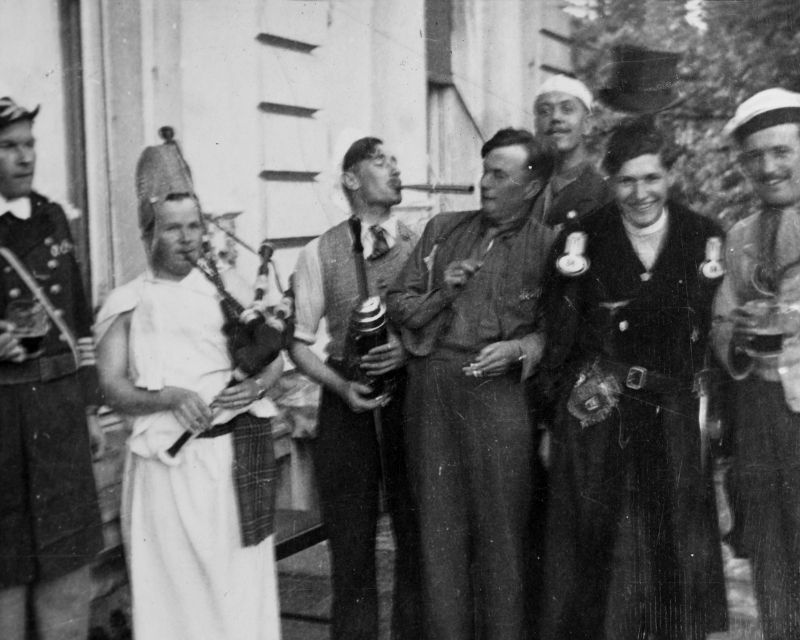
A year to remember
As 1945 came to an end, there were plenty of reasons for celebration. Despite all the challenges that were yet to be resolved, the year had brought the defeat of the Axis powers, the end of the Second World War and the onset of a new era.
For the millions who had served in the British Army, New Year’s Eve was a time for reflection as well as the traditional merriment. There would never be another year quite like this one.
Soldiers of the 3rd/4th County of London Yeomanry (Sharpshooters) are shown above enjoying a fancy-dress party in Elmshorn, Germany.
‘We had a very good New Year’s Eve party in the Mess, but trying to organise it nearly drove me “crackers”. Everyone was very full of Xmas, and I just couldn’t get people to take things seriously and cooperate. However all went very well in the end, and a good time was had by all, though I myself got next to no sleep, not getting to bed till nearly 5.30am and being up again at 7.30 since I was duty officer on New Year’s Day.’Letter from Captain Ronald Hughes, British Army of the Rhine, to his mother, Iserlohn, Germany
On This Day: 1945
This is the final instalment of a series exploring the British Army's role in 1945 – one of the most decisive years in modern history – drawing upon the National Army Museum's vast collection of objects, photographs and personal testimonies.
Throughout 2025, a new instalment was released each month focusing on events from 80 years beforehand. The series highlights the everyday experiences of Britain’s soldiers alongside events of grand historical significance.

